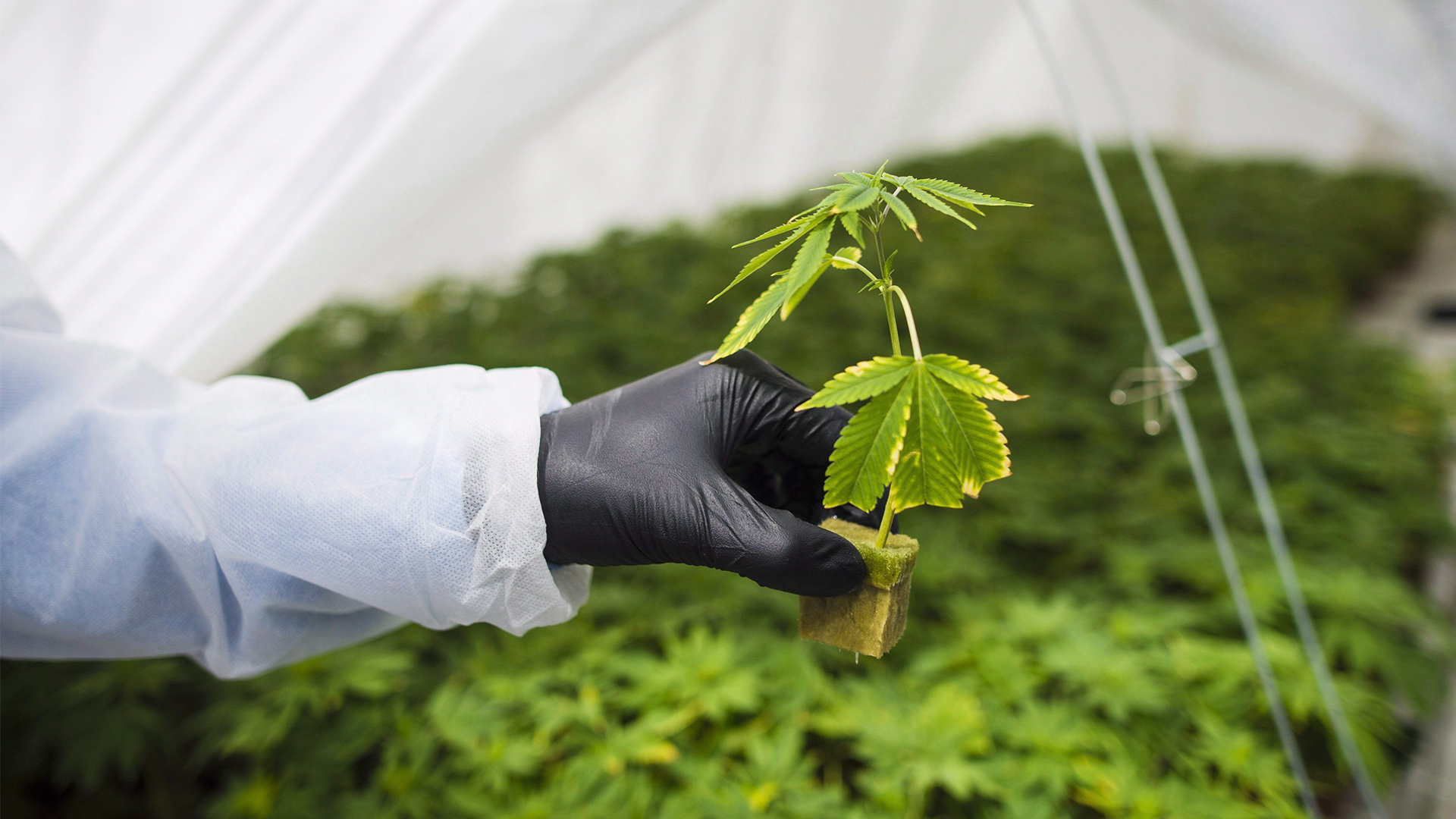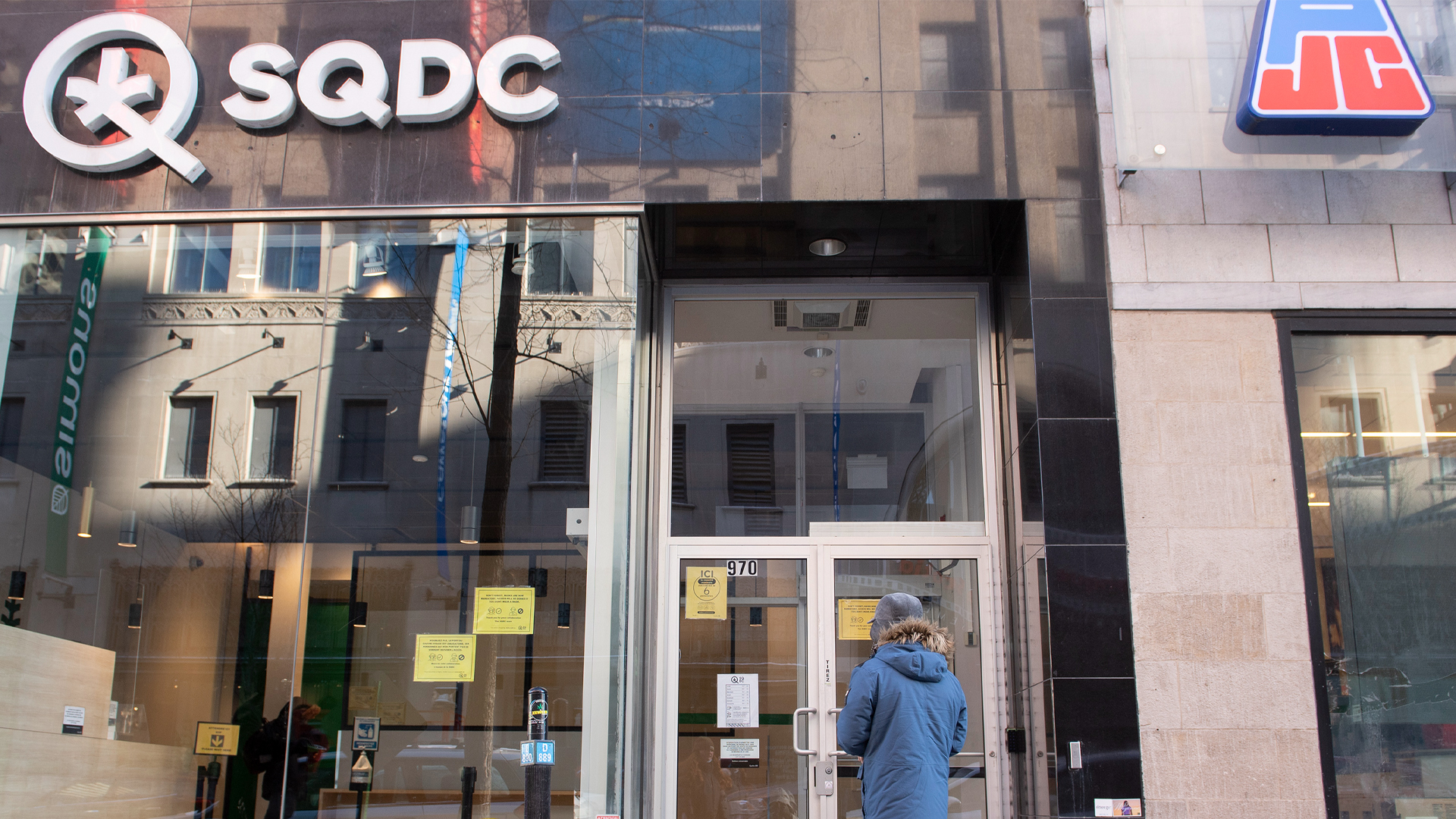
In our country’s conversation on legalizing cannabis, whose voices really matter?
Canada’s cannabis legalization is only months away, and politicians, the police, political pundits, public policy professionals and professors have overwhelmingly dominated the debate. Sadly, and unsurprisingly, the voices of average citizens from racialized and Indigenous communities have been largely unsolicited, sidelined or silenced.
This is especially true for the African-Canadian community. There simply isn’t the same groundswell of vocal, public and collective African-Canadian community pressure regarding cannabis legalization as we’ve seen around other issues such as carding, racial profiling, police (un)accountability, immigration detention and deportation. The Black community has not been organizing and engaged in public advocacy to ensure, for instance, that the legalization process takes into account the inordinate overrepresentation of Black folks in arrests and convictions for possession of cannabis.
It is important to note that Canada’s Cannabis Act will actually increase the number and severity of penalties for the consumption and distribution of cannabis. Given their history as a primary target of cannabis prohibition, African-Canadians are well placed to provide insight on the potential impacts that the Act will likely have on vulnerable populations.
Ravages of the war on drugs
Why is there a relative absence of Black advocacy on this issue? The socio-legal impacts of the failed war on drugs and its proxy, the war on guns and gangs, are a significant factor.
Since the 1980s, policing has disproportionately targeted African-Canadians. For instance, according to the 1995 report of Ontario’s Commission on Systemic Racism in the Criminal Justice System, there was a 1,164 percent increase in the number of Black people admitted to prison for drug trafficking offences between 1986 and 1993. The increase for white offenders was significant too, but far lower, at 151 percent.
This war on drugs has featured heavy-handed policing of Black people and communities, often with militarized policing task forces, such as the recently reconstituted Toronto Anti-Violence Intervention Strategy. It has made racial profiling of Black men and women an endemic and metastasizing feature of policing. It has also spawned the surveillance and containment techniques of what general society has come to know as street checks or carding, but which most Black Canadians have experienced for decades as simply “living while Black.”
The police targeting of Canada’s Black populations through the war on drugs is connected to Canada’s Black incarceration problem. It is an important part of why African-Canadians now make up 3.4 percent of Canada’s overall population, but 8.6 percent of the total incarcerated population in federal jails, according to Canada’s Office of the Correctional Investigator. The war on drugs’ sanctioning of the overpolicing and corresponding underprotection of Black Canadians is also reflected in the staggering overrepresentation of African-Canadians in police use of lethal force incidents.
After being charged and/or convicted for such offences, these African-Canadians are left more or less exiled from full participation in society as gainful employment becomes even less accessible than it already was.
The war on drugs has traumatized and destroyed African-Canadian lives and families, and by extension, whole African-Canadian communities. Too often, politicians, public policy-makers and the broader public refuse or fail to consider the direct role the war on drugs has had on African-Canadian rates of poverty, unemployment, academic achievement and child welfare apprehensions, let alone on police contact and overall incarceration rates. The troubling truth is that this has far too often been the consequence faced by African-Canadians for consuming and exchanging amounts of cannabis that the overwhelming majority of Canadians can comfortably walk around with in their pockets without a legitimate fear that they will actually be stopped, questioned, documented and searched by police.
Moreover, after being charged and/or convicted for such offences, these African-Canadians are left more or less exiled from full participation in society as gainful employment becomes even less accessible than it already was. This is because of the disruption arrest and incarceration cause to individuals’ education, as well as due to the widespread practice of employers requiring employees and prospective employees to disclose their criminal record, even when their job does not involve engaging with vulnerable populations, such as children and youths, the elderly, and people with a disability.
Legalization, stereotypes and stigmatization
Another reason we are not seeing widespread collective participation and involvement of the African-Canadian community in the public policy process of legalizing cannabis is a direct consequence of the decades-long war on drugs’ targeting of Blacks in Canada: stigma.
Through my personal and professional experience, I’ve come to know all too well that it has long become a rite of passage for African-Canadians to be randomly and unexpectedly approached in public (no matter what kind of clothes they’re wearing or how they are groomed) and asked if they either have illegal drugs (including cannabis) for sale or are interested in purchasing any.
All African-Canadians are now scarred by the perpetually haunting prospect of being perceived as a drug dealer, addict or courier, simply because we are Black.
More than an innocent and simple social annoyance, after the decades-long war on drugs, all African-Canadians are now scarred by the perpetually haunting prospect of being perceived as a drug dealer, addict or courier, simply because we are Black. The police, politicians and the mainstream media have played a devastating role in constructing and crystallizing within our collective social consciousness the image of Black people as the default consumers and distributors of illegal substances, especially cannabis.
As a critically important aside, it bears noting that there is no scientific research evidence that African-Canadians are in possession of, consume or distribute more cannabis than any other racial group. Yet the drug abuser, dealer and/or mule stereotypes and their stigmas persist. They are myths as prevalent as they are poisonous to the possibilities of allowing African-Canadians to be judged by the content of their character.
To be sure, pointing out the paucity of collective Black Canadian advocacy on cannabis legalization should not be read as an attempt to ignore or dismiss the work of African-Canadian commentators who have been contributing to this conversation: Professor Akwasi Owusu-Bempah, lawyer Annamaria Enenajor, political commentator Brittany Andrew-Amofah, freelance writer Neil Price, political strategist Tiffany Gooch, and author of the seminal text, Policing Black Lives, Robyn Maynard have offered critical perspectives on cannabis legalization and its connections to Canada’s Black communities. And yet, these individuals are only the exceptions that justify the rule of Black marginalization in Canada’s cannabis legalization debate.
Weak government consultation strategy
Finally, Canada’s war on drugs and the posttraumatic stigma syndrome it has produced in African-Canadian communities are not the only reasons why Canada’s cannabis legalization campaign has not been marked by a strong presence of African-Canadian community pressure. An aggravating factor is the federal, provincial and municipal governments’ one-size-fits-all approach to public consultation and debate on cannabis legalization.
The public engagement efforts by all levels of government and the legalization rollout strategies have failed to include a targeted, focused and accommodating approach to the African-Canadian community. There is no indication that governments appreciate the structural barriers to participation in this debate. African-Canadians generally don’t have the same time, opportunity or access as the average Canadian does to see and complete online government surveys asking for feedback on cannabis legalization, or to attend evening meetings in central downtown locations that do not provide subsidized travel, a healthy and reasonably complete meal, and/or child-care or child-minding services.
Also of important consideration in this regard is the federal government’s appalling decision to task former Toronto police chief Bill Blair with the cannabis legalization file. Blair spent a decade as the overseeing authority behind the hypercriminalization of Black Torontonians, many of whom were youths, for cannabis possession and distribution. Prime Minister Justin Trudeau’s choice of Blair for this portfolio is viewed by many in African-Canadian circles as an indication that the government’s cannabis legalization efforts are only for the purpose of making cannabis available to the privileged, while keeping Black Canadians chronically criminalized in the process. There are already indications that this pessimism is well placed due to the broad expansion of cannabis-related offences under the Cannabis Act, without accompanying reforms to Canada’s pardon system.
Solutions for change
While the deadline for legalization is quickly approaching, there is still time to meaningfully engage and consult the African-Canadian community. Canadian governments at all levels need to demonstrate an active and genuine interest in ensuring that the rollout of cannabis legalization does not perpetuate the marginalization, stigmatization and victimization of African-Canadian communities.
To do so, the move towards cannabis legalization must promptly undertake the following measures:
- The issuing of a comprehensive joint apology by the federal government and its provincial counterparts for their respective roles in unduly implementing and perpetuating the criminalization of African-Canadians through law enforcement efforts to pursue charges and convictions related to cannabis possession, consumption and/or small-scale distribution.
- Establishment and implementation of a process for automatic and immediate amnesty for those charged or convicted in the past for activities that are set to be decriminalized upon the passing of the Canada’s Cannabis Ac (The Globe and Mail’s André Picard recently wrote about clearing criminal records for cannabis convictions.)
- Adoption of long-term and sustainably funded social programs and initiatives that support the full social reintegration of African-Canadians whose lives have been impacted by a cannabis-related arrest, conviction and/or incarceration. Such programs and initiatives should be informed by African-Canadian communities.
Canadian governments at all levels have no doubt been bombarded by a cacophony of vocal critics on cannabis legalization. But there has been no real debate about the legacy of cannabis criminalization on African-Canadians in particular. This has to change.
Canada’s Black experiences and perspectives matter. Our voices on this issue affecting so many of our lives and livelihoods matter. Meaningful efforts to inform, engage and consult Black Canadians are sorely needed at both the federal and provincial levels. Taking into account the disparate impact of drug laws on different groups will ensure reforms are equitable. Without such efforts, we are at risk of further undermining our shared Canadian values around equality, fairness and diversity. Our country might achieve cannabis legalization but harmonize the injustices of the past with those of the future.
Shutterstock/By prokopphoto
Do you have something to say about the article you just read? Be part of the Policy Options discussion, and send in your own submission. Here is a link on how to do it. | Souhaitez-vous réagir à cet article ? Joignez-vous aux débats d’Options politiques et soumettez-nous votre texte en suivant ces directives.








